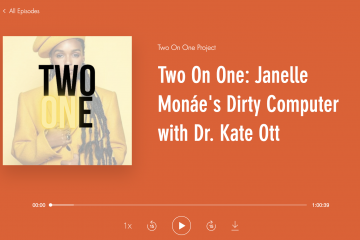Reposted from www.fsrinc.org/blog
Valentine’s Day has been civilized and capitalized, hallmarked and disneyfied, all in an attempt to clean up love and signify sexuality into a compartmentalized relationship standard, tied nicely with an over romanticized bow. As a cradle Catholic, the veneration of saints has been part of my religious heritage. I still remember elementary school projects about our patron saints. So, every year when Valentine ’s Day rolls around, I find myself wanting to remind folks that this was once “St.” Valentine’s Day. Even though, the Roman Catholic Church does not consider St. Valentine ’s Day to be a holy day anymore, it was a popular feast day for hundreds of years. Granted, originally, the Saint and the celebration were born of a Roman Church plot to eradicate the Lupercalia Festival. In addition, there isn’t just one St. Valentine. The history of St. Valentine(s) is messy for sure. But then, love is messy. One story suggests he illegally married young couples against a Roman decree banning marriages because single men made better soldiers. Another story cast him as serving imprisoned Christians and falling in love with the Jailer’s daughter who believed in his cause. Whichever story you believe about St. Valentine, the stories are about love that sought justice in the face of oppression.
St. Valentine’s stories were about resisting the efforts of institutional powers to dictate who could love one another and what shape love might embody. They were also about finding love in unexpected places through service to one’s conviction. Whereas, the current celebration of St. Valentine reinforces that sexuality is about a relationship (a happy one) that solidifies its love with consumer giving or sexual behaviors actualized as a “gift”. What if we repurposed the history of St. Valentine for a more usable present?
St. Valentine, it seems, expressed a love that was energized by a desire for justice. This type of love is what I understand Cristina Traina to be naming when she discusses erotic attunement.** Traina calls for a habit of acknowledging our desires. The effort to attune ourselves requires in my opinion an acknowledgement of sexuality as more than just behaviors or standards of relationship. Sexuality is about our bodies and our comfort in, our awareness toward, and our acceptance of them. Sexuality is informed by sensuality and how we respond to pleasure (the light of the sun, the wanted touch of another, the exhaustion of exercise). Intimacy is the experience of emotional closeness to another person or a higher power. Sexuality is also how I identify my orientation or gender. These aspects are what comprise our sexuality. All of which we cannot know or give meaning to outside of the social, historical, and cultural context in which we live. Erotic attunement is a cultivation of our sexuality, desires, feelings, and relationships with intentionality and integrity.
 What if we celebrated the “eros” in Valentine’s day, but we combined it with a dose of social awareness and personal evaluation that sought attunement? Traina writes, “Genuine erotic love desires the person not as we fantasize her to be but as she is – incomplete and quirky, bumps, warts and all. It enjoys and celebrates her gifts and strengths but is also concerned for her holistic welfare. Nor does genuine erotic love overestimate itself.” In my experience, the love we have for others (and ourselves if we allow it) isn’t a sanitary, desire-free agape. It is erotically energized and deeply creative. It connects us, unravels us, and obligates us in ways we never imagined. So, instead of or at least along with giving flowers, chocolate, candy hearts or lingerie, why not write a genuine erotic love letter to a friend, sibling, child, partner, parent, or one’s self? Or tell true stories about love like those from This American Life and reclaim St. Valentine’s day. Such expressions would be in the tradition of St. Valentine’s works of love energized by a desire for justice.
What if we celebrated the “eros” in Valentine’s day, but we combined it with a dose of social awareness and personal evaluation that sought attunement? Traina writes, “Genuine erotic love desires the person not as we fantasize her to be but as she is – incomplete and quirky, bumps, warts and all. It enjoys and celebrates her gifts and strengths but is also concerned for her holistic welfare. Nor does genuine erotic love overestimate itself.” In my experience, the love we have for others (and ourselves if we allow it) isn’t a sanitary, desire-free agape. It is erotically energized and deeply creative. It connects us, unravels us, and obligates us in ways we never imagined. So, instead of or at least along with giving flowers, chocolate, candy hearts or lingerie, why not write a genuine erotic love letter to a friend, sibling, child, partner, parent, or one’s self? Or tell true stories about love like those from This American Life and reclaim St. Valentine’s day. Such expressions would be in the tradition of St. Valentine’s works of love energized by a desire for justice.
Happy St. Valentine’s Day!


